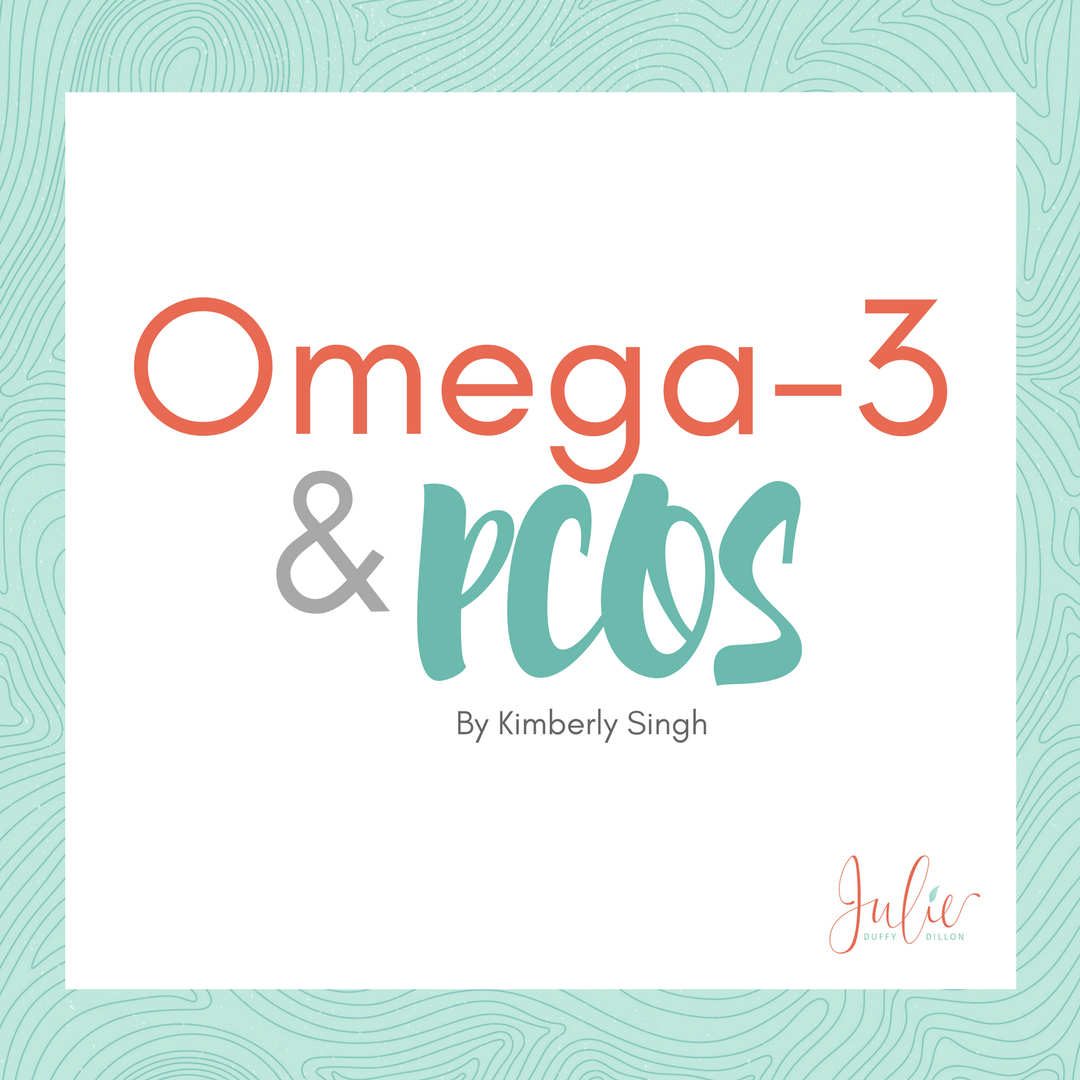This article was written by my previous Nutrition Grad Student, Kimmie Singh. She is a fat woman of color who experiences PCOS. You can find out more information about her work now as a dietitian here.
PCOS and Omega-3 research is exciting stuff. Before we get to the meat of the research, here’s a quick breakdown on essential fatty acids basics.
Omega-3 and omega-6 fatty acids are the two essential fats. This means that your body cannot make this type of fat, and you must get it from your food.
Our bodies prefer a certain ratio of these two fats. Changes in the Western food system have made omega-3 fatty acids less available. One reason: animals fed with soy and corn yield meat that is high in omega-6 fatty acids. Grass-fed animals, on the other hand, yield meat that is higher in omega-3 fatty acids.
Why did they change how animals are fed? Feeding animals soy and corn makes it easier to produce meat at a quicker rate and lower cost. I like to think of it as quality versus quantity of meat.
Some theorize that people with PCOS are more sensitive to this change in the omega-6 to omega-3 ratio.
This research is still emerging, so that means there isn’t a clear understanding of exactly how this ratio influences PCOS. We do know a part of Omega-3, DHA, plays a role in repairing the damage from chronic inflammation.
People with PCOS can adjust their omega-3 intake through food and supplements to adjust the ratio.
Want to find a way to treat your PCOS without dieting?
Grab a FREE download from Julie here.
Some researchers suggest omega-3 fatty acid supplementation normalizes sex hormones (like testosterone), cholesterol, menstrual irregularities, blood sugar, and improves insulin sensitivity.
Have you ever connected your depression or anxiety with your PCOS?
People with PCOS are more likely to struggle with depression. Numerous new studies find consuming omega-3 fatty acids may have a key role in the reducing it.
If you are interested in omega-3 fatty acid supplements, I recommend that you choose a brand that is third-party tested. Julie recommends the following brands: Nordic Naturals, Nature Made, and Kirkland.
Further, experiment with these foods that are omega-3 fatty acid-rich:
- Olive and canola oils
- Chia seeds and flaxseeds (I love adding these to my yogurt)
- Fish like barramundi, trout, tuna, mackerel, salmon and sardines.
Want to explore more non diet options to help manage your PCOS, promote health AND healing?
Click here for details on Julie’s PCOS and Food Peace course.
Resources
Bird, J. K., & McBurney, M. (2016). Seafood Intake of Americans and Meeting Omega-3 Consumption Recommendations. The FASEB Journal, 30(1).
Fesharaki, S., Khani, B., & Mardanian, F. (2017). Omega-3 supplementation effects on polycystic ovary syndrome symptoms and metabolic syndrome. Journal of Research in Medical Sciences, 22(1), 64. doi:10.4103/jrms.jrms_644_16
Office of Dietary Supplements – Omega-3 Fatty Acids. Retrieved July 14, 2017, from https://ods.od.nih.gov/factsheets/Omega3FattyAcids-HealthProfessional/
Nadjarzadeh, A., Firouzabadi, R. D., Vaziri, N., Daneshbodi, H., Lotfi, M. H., & Mozaffari-Khosravi, H. (2013). The effect of omega-3 supplementation on androgen profile and menstrual status in women with polycystic ovary syndrome: A randomized clinical trial. Iranian Journal of Reproductive Medicine,11(8), 665-672.
Phelan, N., Oconnor, A., Tun, T. K., Correia, N., Boran, G., Roche, H. M., & Gibney, J. (2011). Hormonal and metabolic effects of polyunsaturated fatty acids in young women with polycystic ovary syndrome: results from a cross-sectional analysis and a randomized, placebo-controlled, crossover trial. American Journal of Clinical Nutrition, 93(3), 652-662. doi:10.3945/ajcn.110.005538
Toward a Healthy Sustainable Food System. (n.d.). Retrieved July 14, 2017, from https://www.apha.org/policies-and-advocacy/public-health-policy-statements/policy-database/2014/07/29/12/34/toward-a-healthy-sustainable-food-system
Zaree, M., Shahnazi, V., Darabi, M., Mehrzad-Sadaghiani, M., Darabi, M., Khani, S., & Nouri, M. (2015). Expression Levels of PPARγ and CYP-19 in Polycystic Ovarian Syndrome Primary Granulosa Cells: Influence of ω-3 Fatty Acid. International Journal of Fertility and Sterility, 9(2), 197-204. doi:10.22074/ijfs.2015.4240





